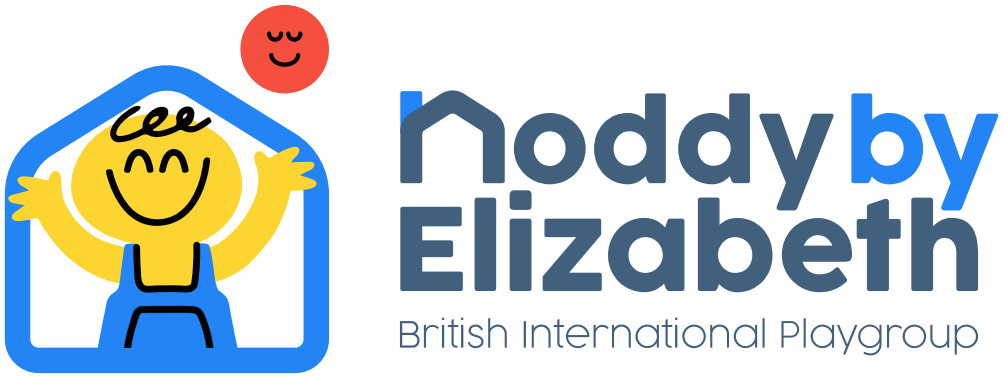At Noddy by Elizabeth, we believe learning outside the classroom walls is as important as learning within. This blog post will discuss the benefits of extracurricular activities throughout different stages of a child’s development. We’ll also explain what their role is in nurturing young minds and bodies so children grow into well-rounded individuals.
What Are Extracurricular Activities?
Extracurricular activities are structured programmes outside the standard curriculum that help children explore their interests and talents in a supervised and constructive environment. These activities extend well beyond traditional sports and arts, offering many opportunities for growth and learning.

Here are some examples of extracurricular activities that may be offered at different stages of a child’s development:
- Sports: Football, swimming, basketball, and gymnastics, which improve physical fitness and teach teamwork.
- Arts: Dance classes, music lessons (instruments and vocal), drama clubs, and painting, which enhance creativity and provide an outlet for self-expression.
- Academic Clubs: Science clubs, coding workshops, chess clubs, and robotics, which stimulate critical thinking and problem-solving.
- Language Learning: Programmes that offer languages in addition to the standard curriculum, such as Thai or Mandarin classes.
- Cultural Clubs: Activities that explore various cultures through festivals, foods, and traditional crafts, enriching children’s cultural awareness.
- Environmental Clubs: Activities that focus on gardening, recycling, and learning about sustainable practices to instil a respect for nature.
- Community Service: Opportunities to engage in local community projects, charity work, and other volunteer activities that foster a sense of civic responsibility.
Benefits of Extracurricular Activities
By engaging in these diverse activities, children get to not only pursue their interests and discover new passions but also develop skills that will benefit them throughout their lives.
Physical Benefits
Physical activities like sports enhance young children’s motor skills, coordination, and overall health. It teaches them the value of fitness and introduces them to habits that set the foundation for leading a fit and healthy lifestyle.
A study by the Centers for Disease Control and Prevention found that students who participate in extracurricular physical activities are 23% more likely to achieve an ‘A’ grade in math or English.
Social Benefits
Activities that involve teamwork or social interaction, foster essential social skills. Children learn how to share, take turns, cooperate, resolve conflicts, and communicate effectively with their peers, which are crucial both in and outside school environments. Participating in diverse group activities helps children learn about different cultures and backgrounds.
Emotional Benefits
Engaging in activities they enjoy can boost children’s self-esteem and confidence. Achieving goals in any activity helps children feel more competent and self-assured. Through structured yet fun challenges, children learn to manage success and disappointment, which develops emotional resilience.
Cognitive Benefits
Extracurricular activities often require critical thinking, planning, and problem-solving. Engaging in structured activities that enhance concentration and focus, such as chess or puzzle-based games, can improve attention spans and focus, skills that are beneficial in academic settings.
Creative Benefits
Arts and crafts, music, and dance activities foster creativity and imagination and allow children to express themselves, which is crucial for cognitive development and emotional health. Activities that allow children to build or create something, like simple robotics or craft projects, encourage innovative thinking and problem-solving skills.

How to Choose Your Child’s Extracurricular Activities
While understanding the importance of extracurricular activities is crucial, finding a school that offers a comprehensive program can be challenging. That’s where institutions like Noddy by Elizabeth come in, providing a solution that combines quality education with a diverse range of extracurricular options.
The role of parents and educators is to guide children towards activities that are right for them. Consider the extracurricular activities that align with your child’s interests, personality, or what they enjoy doing. Look into activities that suit their current skills or areas where they have shown potential and enthusiasm.
Having a healthy balance between academics and extracurricular activities is important to prevent children from becoming overwhelmed. Recognise the signs of overscheduling, and be sure to give your child enough downtime.
Choose a School With an Extracurricular Activities Programme
Extracurricular activities provide opportunities for children to explore their interests in a supportive environment. At Noddy by Elizabeth, we strive for the holistic development of our students. As such, we offer optional extended hours from K1 onwards. The various activities we offer aim to support children’s interests and development beyond regular academic classes. Students can engage in various activities, including cooking, football, tennis, dancing, music, arts & crafts, and Thai language lessons.
Contact us today to schedule a tour and explore our British Early Years School in Bangkok and extracurricular offerings.
